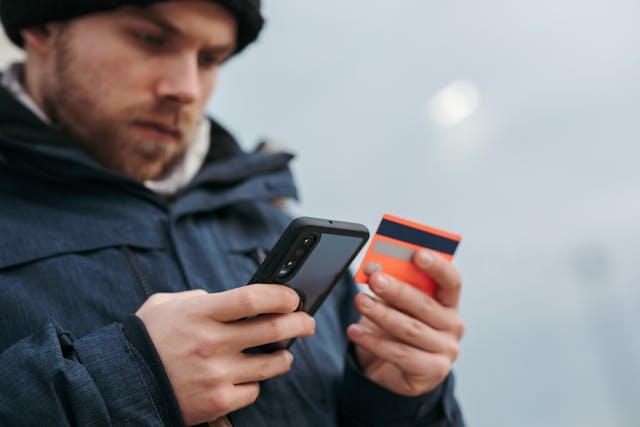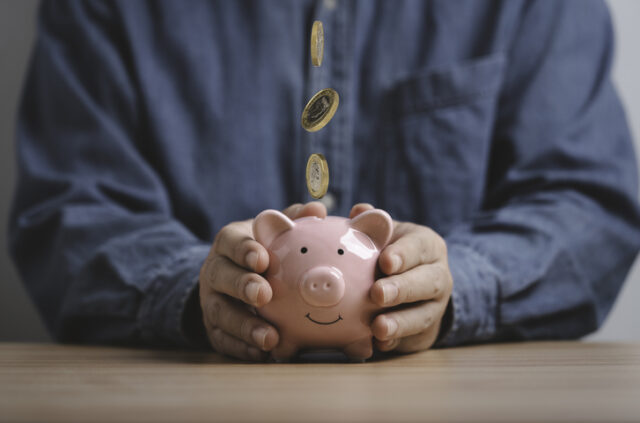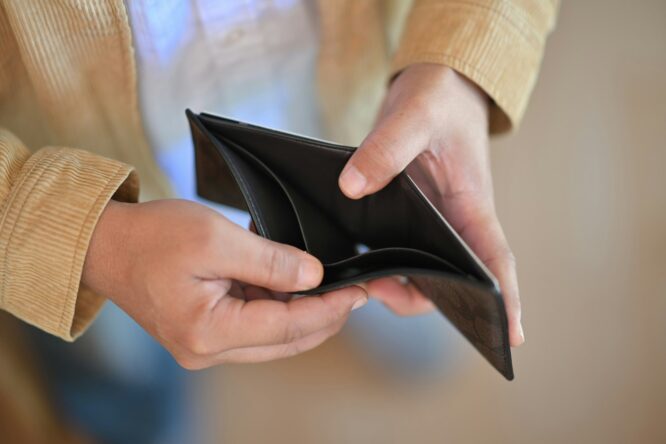Using credit responsibly can be a helpful tool, but some purchases end up costing more in the long run if they aren’t paid off quickly.

Racking up interest on certain items can lead to financial stress. Here are some items that are better bought with cash or saved for rather than putting on a credit card. If you can’t afford them right now, maybe hold off until you can.
1. Your morning McDonald’s or Starbucks order

It’s so easy to swipe for a quick burger or morning latte, but these little purchases add up fast. If you’re putting daily expenses like this on a credit card, they can turn into unnecessary debt if they’re not cleared every month. Over time, even these small, regular expenses can snowball into more than you bargained for. Try using cash or a debit card to stay in control—those little charges really do pile up.
2. Your weekend “going out” outfit

Trendy items can be tempting, but paying for them with credit can make those ‘must-haves’ way pricier if interest starts stacking up. It’s smarter to save up for clothes or stick within your budget. The joy of a new outfit fades pretty quickly if you’re still paying it off months later. If you can’t clear it straight away, it’s probably worth waiting.
3. City breaks or big holidays

Booking a trip is exciting, but putting a holiday on credit can mean you’re still paying it off long after the tan has faded. Saving up means you won’t come back to a pile of payments, and you’ll enjoy the experience a lot more knowing it’s fully covered. No one wants a relaxing holiday that turns into a financial headache back home!
4. Your new iPhone or PS5

Phones, TVs, or the latest gadgets are pricey enough as is, and putting them on credit adds a whole new layer of cost if interest kicks in. Lots of shops offer finance plans with no interest or other payment options, which usually work out better than sticking it on a credit card. If you can pay in full or choose a low-interest plan, it’ll save you money in the end.
5. That new sofa you’ve been eyeing

Furniture can be a major expense, and interest can make that sofa or dining set way more expensive than it needs to be. Paying upfront or going with a no-interest financing option means you can enjoy your new piece without dreading the monthly bill. If you’re not able to cover it right now, waiting until you can might save you a fair bit of cash.
6. Your Netflix subscription
 Source: Unsplash
Source: Unsplash Streaming services, gym memberships—monthly charges like these seem harmless until they start piling up on a credit card. Paying for subscriptions with cash or a debit card keeps things manageable. You’ll have a clearer view of what you’re really spending each month, and it stops these little costs from sneaking up on you.
7. Your weekly Tesco (or Aldi, Waitrose, ASDA, etc.) shop
 Source: Unsplash
Source: Unsplash Groceries are a must, but putting them on credit regularly can lead to debt for something that’s quickly gone. Paying with cash or a debit card keeps your budget on track and stops interest from adding up on essentials. Food shouldn’t come with a high-interest price tag—it’s best to pay as you go for things you need each week.
8. Your water, electricity, or gas bill
 Source: Brooke Cagle/Unsplash
Source: Brooke Cagle/Unsplash Using credit to cover utility bills might mean it’s time to check your budget. Interest on monthly bills can add up quickly and make it harder to stay on top of payments later. If you’re struggling with utilities, contact the provider—lots of them offer manageable payment plans that help avoid interest fees.
9. Medical expenses

Putting private medical bills on credit can be tempting, but it’s often not the best route. Those costs can already be high, and adding interest makes them even tougher to pay off. Check with your healthcare provider—many offer interest-free payment options. You’ll probably find it easier to handle payments directly through them.
10. Gifts

It’s easy to go overboard on gifts, but paying with credit can lead to a dose of regret when the bill rolls in. Setting a budget and sticking to cash can make gift-giving feel more rewarding without adding financial strain. After all, it’s the thought that counts, not the amount you owe afterward.
11. The money you owe HMRC

Paying taxes with a credit card often means extra fees and interest, making it even more expensive. If you’re unable to cover your tax bill in full, look into setting up a payment plan with HMRC. They often offer options that save you from piling on unnecessary costs.
12. Home décor
 Source: Unsplash
Source: Unsplash Décor items like art or new rugs can be a nice way to update your space, but they’re usually not worth the added interest. If you’re planning to redecorate, saving up helps keep things within budget and gives you time to decide what you really want. You’ll enjoy your home upgrade more when it’s debt-free.
13. Luxury items
 Source: Unsplash
Source: Unsplash Big-ticket luxury buys, like designer bags or jewellery, can hit hard on a budget if you buy them on credit. The interest makes these splurges a bit less fun in the long run. Saving up for these purchases usually feels a lot more satisfying and financially secure. If you’re going to indulge, making sure you’re fully covered keeps the excitement without the added cost.




